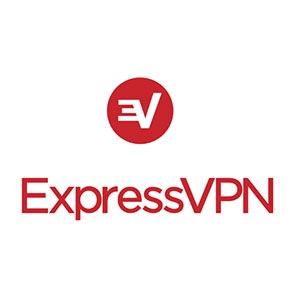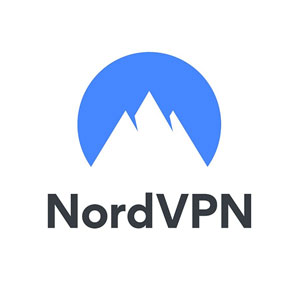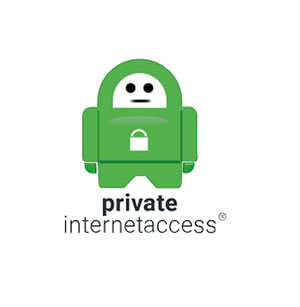The Best VPNs For June 2025
Securing your online activities and protecting your sensitive information from cyber threats is crucial in today’s digital age. A Virtual Private Network (VPN) is a must-have tool for anyone who wants to browse the internet safely and anonymously. Here’s a comprehensive guide to help you find the best VPNs on the market.
Use on:

Our VPN picks have been featured on

Try ExpressVPN with no commitment! If you’re not satisfied in the first 30 days, let us know, and you’ll get your money back.
- World’s #1 premium VPN
- Servers in 105 countries
- Best-in-class encryption
- 24-hour live chat support
- TrustedServer technology
- Lightning-fast speeds
- Works on every platform
- Use on up to 8 devices
- No activity logs
Excellent
At expressvpn.com

Enjoy a more private and secure internet, block malicious websites, stop web trackers, and monitor your data leaks — all in one app.
- Protect yourself online every day
- wherever you are. Securely access apps
- Secure encryption
- Safe when disconnected
- Split tunneling
- Double VPN
- SmartPlay
- Private DNS
Great
At nordvpn.com

Private Internet Access: The Best VPN for Digital Privacy
- State Of The Art Updates
- Global VPN Server Network
- Hide Your IP Address
- No Logs Policy
- VPN Encryption
- Protect Your Personal Identity
- Download VPN Apps on All Devices
- Split Tunneling
- Unlimited Device Connections
Great
At Piavpn.com

CyberGhost VPN lets you access your favorite content wherever you go. You can bypass local network blocks at work and school
- Streaming-optimized servers
- Wi-Fi Protection
- 7 Device connections
- Money-back guarantee 45 days
- Split tunneling
- Private DNS
very Good
At cyberghostvpn.com

Surf the web without tracking with a VPN, shield your devices with Antivirus, & guard your identity with an all-in-one app.
- Obfuscated servers
- Double VPN
- Split tunneling
- NoBorders
- Split tunneling
- CleanWeb
- Dedicated IP
very Good
At surfshark.com
Best VPN Free Trials

- Protect yourself online every day
- wherever you are. Securely access apps
- Secure encryption
- Safe when disconnected
- Split tunneling
- Double VPN
- SmartPlay
- Private DNS

- World’s #1 premium VPN
- Servers in 105 countries
- Best-in-class encryption
- 24-hour live chat support
- TrustedServer technology
- Lightning-fast speeds
- Works on every platform
- Use on up to 8 devices
- No activity logs

- State Of The Art Updates
- Global VPN Server Network
- Hide Your IP Address
- No Logs Policy
- VPN Encryption
- Protect Your Personal Identity
- Download VPN Apps on All Devices
- Split Tunneling
- Unlimited Device Connections
Special Deal: 12 Months+ 3 Months FREE
30-day money-back guarantee
12 Months + 3 MONTHS FREE
save 48%
12.95$/mo
6.67$
Most Popular
30-day money-back guarantee
Frequently Asked Questions
What is a VPN?
A VPN, or Virtual Private Network, is a service that creates a private, encrypted connection over the internet between a user’s device and a server. Here’s a detailed explanation:
Purpose: The primary purpose of a VPN is to enhance privacy and security. When you connect to the internet through a VPN, your internet traffic is routed through an encrypted tunnel to the VPN server before it reaches the internet. This process serves several key functions:
Privacy: It hides your IP address, making your online actions virtually untraceable. Websites and services see the IP address of the VPN server instead of your own.
Security: Encryption ensures that data transmitted over public networks is secure from eavesdroppers, which is particularly useful when using public Wi-Fi networks that are not secure.
Anonymity: By masking your real IP address, VPNs help maintain anonymity online, reducing the risk of being tracked by advertisers, governments, or hackers.
Functionality:
- When you use a VPN, your data is encrypted from your device to the VPN server. This means that even if data were intercepted, it would be unreadable without the decryption keys.
- Once the data leaves the VPN server to the internet, it appears as if it originates from the server’s location, not your actual location. This can also bypass geo-restrictions or censorship by making it seem like you are accessing the internet from another country.
Use Cases:
- Remote Access: Businesses use VPNs to allow employees to securely access corporate resources from outside the office.
- Streaming: Users might use VPNs to access content that is geographically restricted, like different regions’ Netflix libraries.
- Avoiding Censorship: In countries where internet use is heavily censored, VPNs can provide a way to access blocked websites and services.
Considerations:
- Speed: Since your traffic is routed through an additional server and encrypted, there can be a reduction in internet speed.
- Trust: Users must trust their VPN provider since the provider can potentially see all traffic. Therefore, choosing a reputable VPN service with a no-logs policy is crucial.
- Cost: While there are free VPNs, paid services generally offer better performance, more features, and stronger privacy guarantees.
In summary, VPNs are essential tools for enhancing online privacy, security, and freedom, but they should be chosen and used with an understanding of their capabilities and limitations.
What are the Benefits of a VPN?
VPNs offer a range of benefits that enhance both privacy and functionality for internet users. Here are some of the key advantages:
Enhanced Security:
- Encryption: VPNs encrypt your internet traffic, which means your data is unreadable to anyone who might intercept it, including ISPs, hackers on public Wi-Fi, or government surveillance.
- Secure Data Transfer: For remote workers, VPNs allow secure access to a company’s internal network, protecting sensitive information.
Privacy Protection:
- IP Address Masking: By routing your connection through a VPN server, your real IP address is hidden. This makes it difficult for third parties to track your online activities or determine your physical location.
- Anonymity: VPNs help maintain anonymity online, reducing the digital footprint that can be traced back to you.
Bypassing Geo-restrictions:
- Access to Global Content: You can connect to servers in different countries to access content that might be restricted or unavailable in your location, like streaming services, websites, or online games.
- Overcoming Censorship: In regions where internet access is restricted or censored, VPNs can provide a means to access the open internet.
Safe File Sharing:
- When sharing files, especially in a peer-to-peer (P2P) context, a VPN can protect your identity and data from others within the network.
Avoiding Price Discrimination:
- Some online services offer different prices based on the user’s location. A VPN can potentially allow users to shop from different locales to find better deals.
Improved Online Gaming:
- Using a VPN can reduce ping times and improve gaming performance by connecting to servers closer to the game server. It can also protect against DDoS attacks.
Public Wi-Fi Safety:
- Public Wi-Fi networks are often not secure. A VPN provides an encrypted connection, reducing the risk of data theft when using these networks.
Avoiding Bandwidth Throttling:
- Some ISPs throttle bandwidth for certain types of traffic (like streaming or torrenting). A VPN can prevent your ISP from seeing what you’re doing online, potentially avoiding such throttling.
Corporate Use:
- Businesses use VPNs to allow secure communication and data transfer between different office locations or with remote employees, ensuring that business communications remain private.
While VPNs provide these benefits, it’s important to choose a reliable VPN service that does not log your activities, offers strong encryption, and has good performance to ensure that these benefits are realized without compromising on speed or privacy.
Should I Pay for a VPN?
Deciding whether to pay for a VPN (Virtual Private Network) involves considering several factors, including your needs, the risks involved, and the benefits offered by VPN services. Here’s a step-by-step analysis to help you make an informed decision:
1. Understand What a VPN Does:
- Privacy: VPNs encrypt your internet traffic, making it difficult for third parties like ISPs, governments, or hackers to monitor your online activities.
- Security: They provide a secure connection, especially useful on public Wi-Fi networks where data interception is more common.
- Anonymity: By masking your IP address, VPNs can make your online identity less traceable.
- Access: VPNs can bypass geo-restrictions, allowing you to access content that might be blocked in your region.
2. Assess Your Needs:
- Privacy Concerns: If you’re concerned about privacy, especially in regions with strict internet surveillance, a VPN is highly beneficial.
- Security Needs: For regular use of public Wi-Fi, handling sensitive information like online banking, or working remotely, a VPN adds a layer of security.
- Content Access: If you travel frequently or wish to access content from other countries (like streaming services), a VPN can be very useful.
- Torrenting: If you engage in torrenting, a VPN can protect your identity and provide some legal protection.
3. Evaluate Free vs. Paid VPNs:
Free VPNs:
- Pros: No cost, can be good for casual browsing or testing out VPN services.
- Cons: Often have data caps, slower speeds, fewer server options, and may log your data. Some free VPNs might even sell your data or show ads.
Paid VPNs:
- Pros: Generally offer unlimited data, faster speeds, more server locations, better security protocols, and no logs policies. They also provide customer support and regular updates.
- Cons: Monthly or yearly subscription cost.
4. Cost-Benefit Analysis:
- Cost: Paid VPNs range from $3 to $12 per month, often with discounts for annual subscriptions. Consider this against the value of your privacy, security, and the convenience of unrestricted internet access.
- Quality: Higher quality services usually come with better performance, more features, and more reliable privacy protection.
5. Legal and Ethical Considerations:
- Using a VPN is legal in most countries, but what you do with that anonymity (e.g., accessing content you’re not supposed to) can have legal implications. Always use VPNs ethically and within the law.
6. Recommendations:
- For Regular Users: If you occasionally need privacy or want to access international content, a mid-tier paid VPN might be sufficient.
- For Professionals or High-Risk Users: If you deal with sensitive data or live in a country with strict internet laws, investing in a premium VPN service is advisable.
- For Casual Users: If your needs are minimal, you might start with a free VPN but be aware of the limitations and potential risks.
Conclusion:
Paying for a VPN can be justified if you value your privacy, need secure internet connections, or require access to geo-restricted content. The investment in a reliable VPN can protect your data and enhance your online experience, making it a worthwhile expense for many users. However, if your usage is minimal or occasional, you might weigh the costs against the benefits more critically. Always choose a VPN provider with a strong reputation for privacy, security, and performance.
AVAGuide.com
